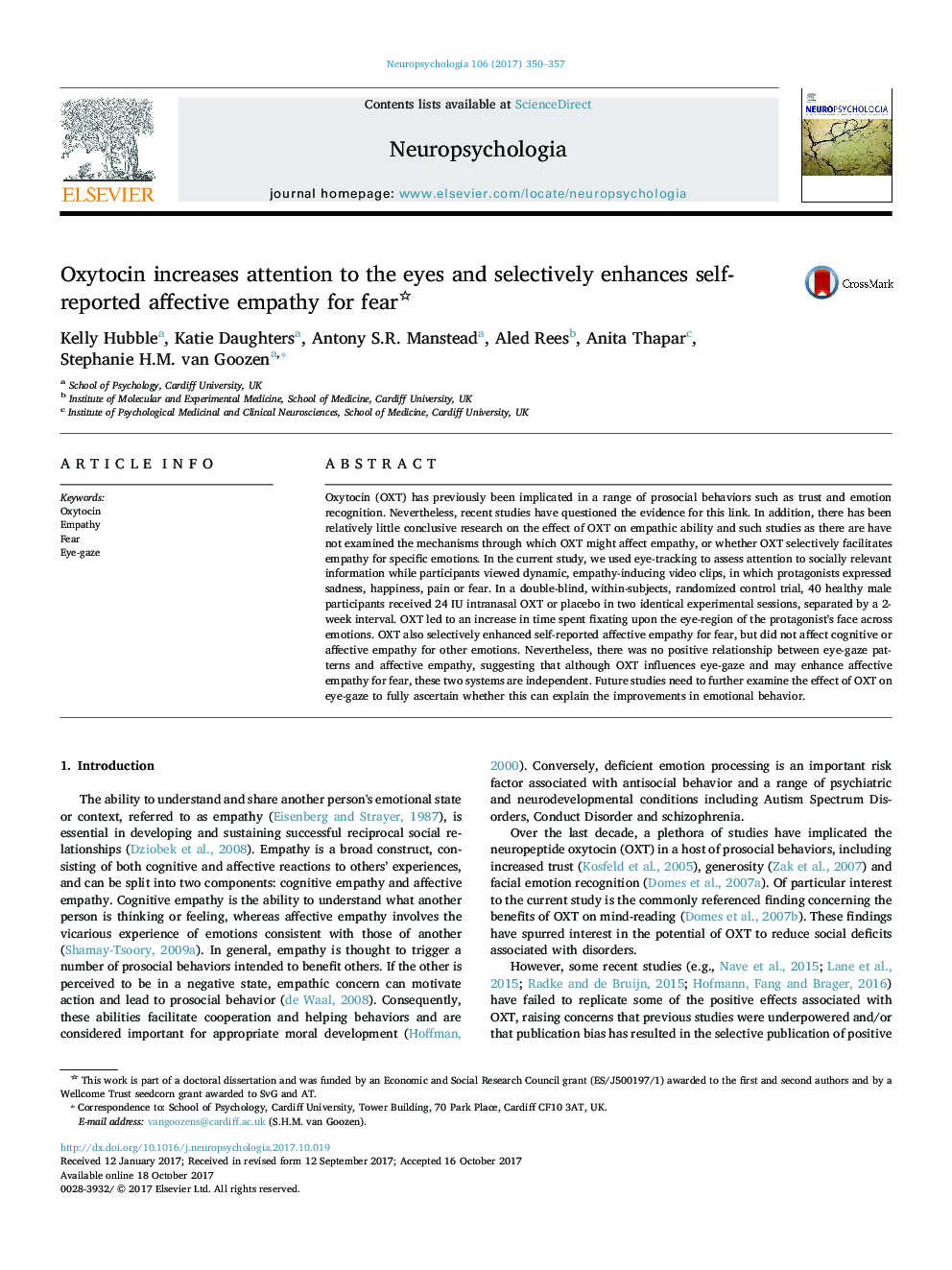| کد مقاله | کد نشریه | سال انتشار | مقاله انگلیسی | نسخه تمام متن |
|---|---|---|---|---|
| 7318427 | 1475549 | 2017 | 8 صفحه PDF | دانلود رایگان |
عنوان انگلیسی مقاله ISI
Oxytocin increases attention to the eyes and selectively enhances self-reported affective empathy for fear
دانلود مقاله + سفارش ترجمه
دانلود مقاله ISI انگلیسی
رایگان برای ایرانیان
موضوعات مرتبط
علوم زیستی و بیوفناوری
علم عصب شناسی
علوم اعصاب رفتاری
پیش نمایش صفحه اول مقاله

چکیده انگلیسی
Oxytocin (OXT) has previously been implicated in a range of prosocial behaviors such as trust and emotion recognition. Nevertheless, recent studies have questioned the evidence for this link. In addition, there has been relatively little conclusive research on the effect of OXT on empathic ability and such studies as there are have not examined the mechanisms through which OXT might affect empathy, or whether OXT selectively facilitates empathy for specific emotions. In the current study, we used eye-tracking to assess attention to socially relevant information while participants viewed dynamic, empathy-inducing video clips, in which protagonists expressed sadness, happiness, pain or fear. In a double-blind, within-subjects, randomized control trial, 40 healthy male participants received 24 IU intranasal OXT or placebo in two identical experimental sessions, separated by a 2-week interval. OXT led to an increase in time spent fixating upon the eye-region of the protagonist's face across emotions. OXT also selectively enhanced self-reported affective empathy for fear, but did not affect cognitive or affective empathy for other emotions. Nevertheless, there was no positive relationship between eye-gaze patterns and affective empathy, suggesting that although OXT influences eye-gaze and may enhance affective empathy for fear, these two systems are independent. Future studies need to further examine the effect of OXT on eye-gaze to fully ascertain whether this can explain the improvements in emotional behavior.
ناشر
Database: Elsevier - ScienceDirect (ساینس دایرکت)
Journal: Neuropsychologia - Volume 106, November 2017, Pages 350-357
Journal: Neuropsychologia - Volume 106, November 2017, Pages 350-357
نویسندگان
Kelly Hubble, Katie Daughters, Antony S.R. Manstead, Aled Rees, Anita Thapar, Stephanie H.M. van Goozen,